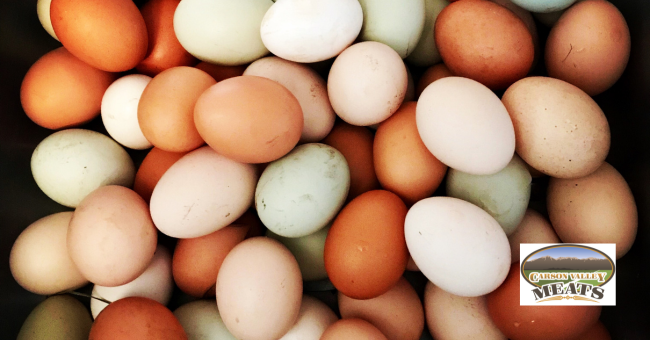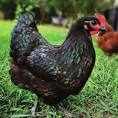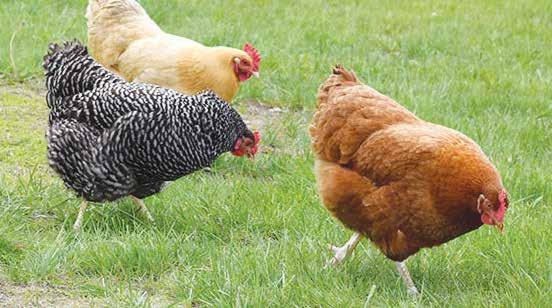
Beyond the Basics: Sourcing Unique Poultry Breeds for a Sustainable Homestead
Tired of the same old white eggs you find at the grocery store? Imagine collecting vibrant blue, green, or chocolate-colored eggs from chickens with personalities as colorful as their plumage! For those of us dedicated to sustainable and fulfilling lives on our homesteads, every choice matters, from the seeds we sow to the livestock we raise. And when it comes to poultry, there's a whole world beyond the common breeds found on commercial farms. This blog post will delve into the rewarding, yet sometimes challenging, realm of sourcing unique and heritage poultry breeds, offering insights into why these breeds matter, where to find them, and how to integrate them into a thriving homestead ecosystem.

Why Choose Heritage and Unique Poultry Breeds?
Modern agriculture has focused on maximizing output, often at the expense of genetic diversity and adaptability. This is especially true in the poultry industry, where a handful of hybrid breeds dominate the market. Choosing heritage and unique poultry breeds is a conscious decision to move away from this model and embrace a more sustainable and resilient approach to homesteading.
Genetic Preservation: Heritage breeds are like living time capsules, preserving genetic traits that have been honed over generations. These traits can include disease resistance, foraging ability, and adaptability to specific climates. Organizations like The Livestock Conservancy work tirelessly to protect these breeds from extinction, and by raising them, we homesteaders actively contribute to their preservation.
Adaptability and Resilience: Unlike modern hybrids bred for specific, controlled environments, heritage breeds are often more adaptable to a wider range of conditions. They're typically better at withstanding temperature fluctuations, foraging for their own food, and resisting common poultry diseases. In my own experience, my Buckeye chickens have proven far more resilient to the harsh winters of my region compared to some of the commercial breeds I've tried.
Superior Flavor and Quality: There's a noticeable difference in the flavor and texture of eggs and meat from heritage breeds. The eggs often have richer yolks and firmer whites, while the meat tends to be more flavorful and less prone to drying out during cooking. This is often due to their slower growth rate and more varied diet.
Foraging Ability and Sustainability: Many heritage breeds are excellent foragers, meaning they can supplement their diet by scavenging for insects, seeds, and greens. This reduces your reliance on purchased feed, lowering your costs and making your homestead more sustainable. My Orpingtons are particularly adept at turning my compost pile into a buffet!
Dual-Purpose Breeds: Historically, chickens were raised as dual-purpose animals, providing both eggs and meat. While modern hybrids have been bred to excel at one or the other, many heritage breeds retain this valuable dual-purpose capability. Breeds like Rhode Island Reds, Plymouth Rocks, and Wyandottes can provide a steady supply of both eggs and meat, making them ideal for the diversified homestead.
Navigating the World of Heritage Poultry: Knowing Your Options
The world of heritage poultry is vast and diverse, with breeds to suit every homestead and climate. It is crucial to research each breed and understand the implications that are involved in raising them.
Popular Heritage Breeds:
- Egg Layers: For vibrant blue eggs, consider the Ameraucana. If you are looking for dark brown speckled eggs, the Barnevelder are a good choice. Those seeking chocolate eggs should opt for Welsummers.
- Meat Breeds: If you are primarily looking to raise poultry for meat, consider the Delaware, Buckeye, or Wyandotte.
- Dual-Purpose: If you would rather have the best of both worlds, the Orpingtons, Rhode Island Reds, or Plymouth Rocks might be your best bet!
Rare/Unique Breeds: Beyond the popular breeds, there's a fascinating array of rare and unique poultry breeds, each with its own distinctive characteristics and history. Some examples include the Crevecoeur, La Fleche, and Scots Dumpy. These breeds can be more challenging to source and raise, but they offer the opportunity to contribute to the preservation of unique genetic lines.
Considerations for Breed Selection:
- Climate Compatibility: Choose breeds that are well-suited to your local climate. Some breeds are more tolerant of cold weather, while others thrive in hot climates.
- Space Requirements: Consider the amount of space you have available. Some breeds are active foragers and require ample room to roam, while others are content in smaller enclosures.
- Temperament: Think about the temperament of different breeds, especially if you have children or other livestock. Some breeds are docile and friendly, while others can be more aggressive.
- Intended Purpose: Clarify your primary goal. Are you primarily interested in eggs, meat, or a combination of both?
Sourcing Sustainably and Ethically: Where to Find Your Flock
Choosing where to source your heritage poultry is just as important as choosing the right breed. Prioritizing animal welfare, breed standards, and biosecurity will ensure that you are investing in a flock that has a long, healthy life.
Reputable Breeders: The best way to ensure you're getting healthy, well-bred birds is to source them from reputable breeders. Look for breeders who are knowledgeable about their breeds, practice good biosecurity measures, and are committed to ethical animal husbandry. Ask questions about their breeding practices, vaccination protocols, and overall approach to animal care.
Hatcheries vs. Breeders: Hatcheries can be a convenient way to acquire chicks, but it's important to be aware of the potential downsides. Hatchery chicks may be more prone to health problems and may not always be true to breed standard. Breeders, on the other hand, typically offer higher-quality birds with a greater guarantee of genetic purity.
Local Poultry Clubs and Associations: Connecting with local poultry clubs and associations can be a valuable resource for finding breeders, learning about different breeds, and getting advice from experienced poultry keepers. These organizations often host shows and events where you can see different breeds up close and meet breeders in person.
Online Marketplaces: Online marketplaces like eBay and Facebook Groups can be a convenient way to find heritage poultry, but it's essential to exercise caution and due diligence. Be wary of sellers who offer suspiciously low prices or who are unwilling to provide detailed information about their birds. Always ask for photos and videos of the birds and inquire about their health history.
The Livestock Conservancy Breeders Directory: The Livestock Conservancy maintains a breeders directory on their website, which is a valuable resource for finding reputable breeders of heritage poultry breeds.

Biosecurity and Quarantine: Protecting Your Investment
Bringing new birds onto your homestead always carries a risk of introducing diseases to your existing flock. Implementing strict biosecurity and quarantine measures is essential for protecting your investment and ensuring the health of all your birds.
Importance of Quarantine: Quarantine involves isolating new birds from your existing flock for a period of time to observe them for signs of illness. This allows you to identify and address any health problems before they can spread to the rest of your flock.
Quarantine Procedures: Set up a separate quarantine area away from your existing coop and run. Provide the new birds with their own dedicated equipment, including feeders, waterers, and cleaning tools. Observe them closely for signs of illness, such as lethargy, loss of appetite, respiratory problems, or diarrhea.
Common Poultry Diseases: Be familiar with common poultry diseases like coccidiosis, Marek's disease, and avian influenza. Learn how to identify the symptoms of these diseases and take appropriate action if you suspect a problem.
Working with a Veterinarian: Establish a relationship with a veterinarian who specializes in poultry. Your vet can provide guidance on biosecurity measures, disease prevention, and treatment options.
Beyond the Chicken: Supporting a Sustainable Poultry Ecosystem
Raising heritage poultry sustainably involves more than just providing them with food and shelter. It means creating a holistic ecosystem that benefits the environment, the community, and your homestead.
Regenerative Agriculture Practices: Integrate poultry into a regenerative agriculture system by using them to control pests, fertilize pastures, and improve soil health. Rotate your chickens through different areas of your property to prevent overgrazing and distribute manure evenly.
Supporting Local Feed Suppliers: Source feed from local, organic suppliers whenever possible. This reduces transportation costs, supports local farmers, and ensures that your chickens are getting high-quality feed.
DIY Feed Options: Supplement your chickens' diet with homegrown feed options like mealworms, black soldier fly larvae, and sprouted grains. These options can reduce your reliance on purchased feed and provide your chickens with a more nutritious diet.
Composting Chicken Manure: Chicken manure is a valuable resource for enriching garden soil. Compost it properly to kill harmful pathogens and create a nutrient-rich amendment for your plants.
Building a Community: Connect with other homesteaders and poultry keepers to share knowledge, resources, and support. Attend workshops and conferences, join online forums, and participate in local poultry events.

Cultivating a Colorful Future with Heritage Poultry
Raising heritage and unique poultry breeds is a rewarding experience that connects us to our agricultural heritage and contributes to a more sustainable future. By choosing these breeds, we're not just raising chickens; we're preserving genetic diversity, supporting ethical farming practices, and enriching our homesteads with vibrant colors, flavors, and personalities. It might take a little more research and effort to source and raise heritage breeds, but the benefits are well worth it. So, embrace the challenge, explore the diverse world of heritage poultry, and cultivate a colorful future on your homestead.
Ready to start your heritage poultry journey? What are some unique breeds that have caught your eye, and what challenges do you foresee in raising them? Share your thoughts and experiences in the comments below!